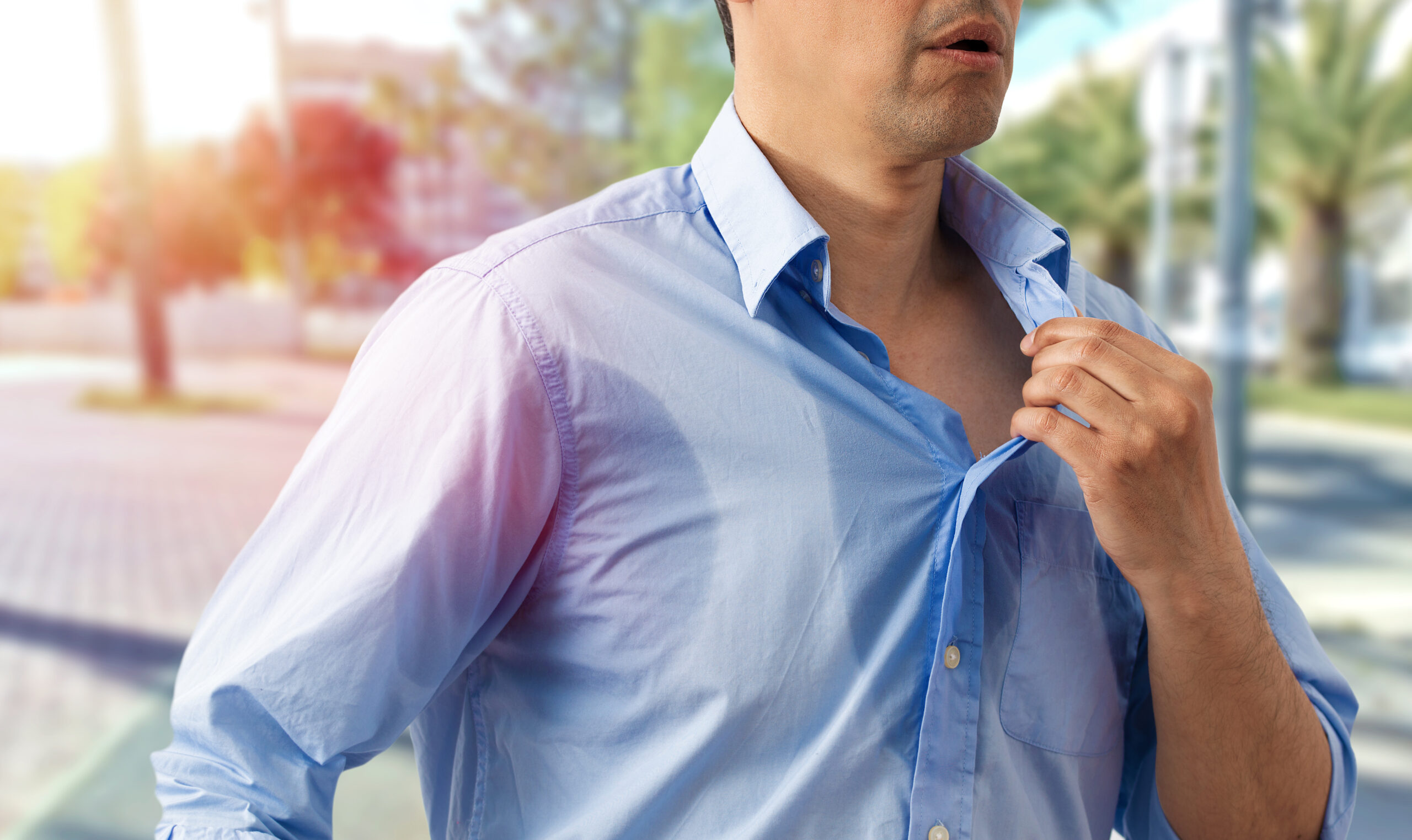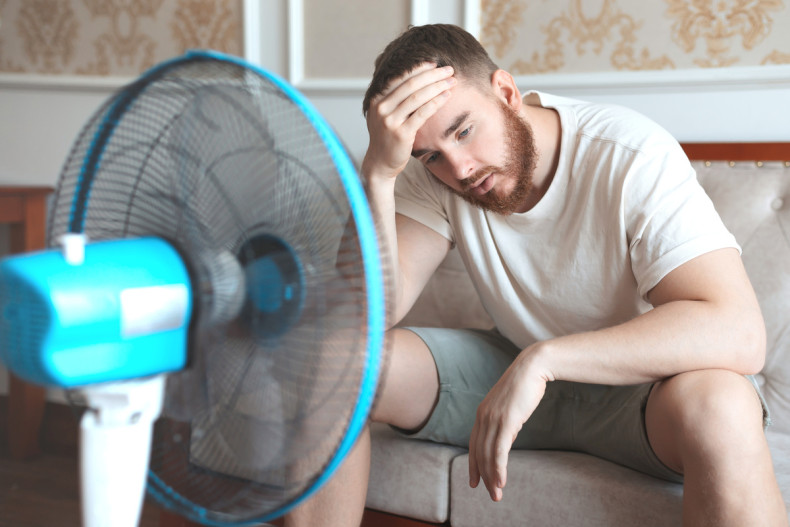Does hot weather cause heart problems?
Recent years have seen some of Europe’s hottest summers on record, with several countries around the continent reaching 45 degrees Celsius or higher on the warmest days. With these temperatures expected to become the norm , understanding how extreme heat can affect the heart has never been more relevant. Dr Zhong Chen, consultant cardiologist and electrophysiologist, explains more about how the body reacts to warm temperatures, and what we can do to keep cool in the summer months.
How does the body keep cool?
The human body functions best at a temperature from 36.5 degrees Celsius to 37.25 degrees Celsius. Inevitably, being in a hot environment can cause this internal temperature to rise, which is why the body has two main methods of cooling down; radiation and evaporation.
The body’s first way to cool down is to transfer excess heat to the blood in a process known as radiation. The heart then works to circulate blood to the skin, where it cools down more quickly. “This is why we might look flushed when we get hot – it’s the body’s way of cooling us down,” explains Dr Chen. “However, radiation can put strain on the heart as it requires it to pump blood harder and beat faster than usual.”
If radiation doesn’t reduce your internal temperature enough, which can occur if the air temperature is the same as or hotter than our body temperature, evaporation is another way to keep cool. This is the process of sweat evaporating from the skin, cooling your body as liquid sweat turns into vapour.
The evaporation of a teaspoon of sweat is thought to cool the bloodstream by as much as around one degree Celsius. As it evaporates, it has a cooling effect on the skin and in turn reduces the temperature of your bloodstream and overall internal temperature. This prevents you from overheating but, due to the loss of fluids, can contribute to dehydration.
How does sweating affect heart rhythm?
While sweating is an effective method to cool the body, it can also put further strain on your cardiovascular system. When you sweat, you lose sodium, potassium and other key minerals which your body requires in order to function. According to the American Heart Association (AHA), staying well hydrated also helps your heart to pump blood to your muscles more effectively.
Loss of fluids is known to trigger arrhythmia (abnormal heart rhythm). People with arrhythmia may have heartbeats which are too slow, too quick or irregular. A type of arrhythmia is atrial fibrillation (AF), a rapid and uncoordinated heartbeat. One of the main risk factors for AF in warm weather is dehydration, which is more likely to occur when you’re losing fluids by sweating.
AF can increase your risk of stroke by up to five times, make a heart attack more likely, and cause unpleasant symptoms such as palpitations (a fluttering feeling in your chest or neck), chest pain, fatigue and breathlessness. “If you regularly experience heart palpitations, especially if they are worsening or lasting longer than a few minutes, you should speak to your doctor,” advises Dr Chen.

One of the main risk factors for atrial fibrillation in warm weather is dehydration, which is more likely to occur when you’re losing fluids by sweating
Increased risk of heart failure and heart attacks
If you have been previously diagnosed with heart failure, you should take extra care to keep cool in hot weather. This is because, with heart failure, your heart doesn’t pump blood around your body as effectively as it should. In hot weather, the heart is already under more strain than usual, as it works to keep the body’s core temperature at normal levels. In fact, for approximately every 0.5 degree Celsius that your body temperature rises by, your heart beats an extra 10 times a minute.
“Even if you haven’t been diagnosed with heart failure before, as your heart works harder in higher temperatures, you may find yourself at a greater risk,” explains Dr Chen. “Heart failure usually happens when the heart has become too weak or too stiff, often occurring gradually over a number of months or years.” People with heart failure are up to nine times more likely to experience arrhythmias that lead to sudden cardiac arrest.
According to the American Heart Association, the risk of a fatal heart attack may double in a heatwave, particularly when experienced in areas with high levels of air pollution. Over heatwaves lasting two days (with temperatures ranging from 28 to 36 degrees Celsius) the risk of fatal heart attack was 18% higher. Over heatwaves lasting four days (with temperatures from 34 to 43 degrees Celsius) the risk of fatal heart attack was 74% higher.
These results show that the likelihood of a fatal heart attack increases in line with temperatures and also with duration of the period of hot weather. The study, carried out in China, investigated the impacts of cold weather too and found that extreme cold temperatures also contribute to excess deaths, particularly in people with heart failure.
How to keep cool in the heat
There are a number of steps you can take to keep cool and prevent your body from being affected by extreme heat. “Although it may sound obvious, staying out of direct sunlight is the best thing you can do to keep cool,” says Dr Chen. “As tempting as it may be on a sunny day to enjoy the rays outside, sitting in shade or inside will help you stay cool.” Making the most of air conditioning is also advised during hot weather.
If you do feel like you’re overheating or experiencing heat exhaustion, placing a cool, damp towel on your skin is another option, helping your body to cool excess heat in the blood. A cold shower also helps to achieve this but, depending on where you are, isn’t always an option (for example, if you’re out for the day).
“You should also avoid alcohol and caffeine, as these can dehydrate you, as well as hot drinks which will make you feel warmer,” explains Dr Chen. “Instead, try to consume cold food and drinks where possible and ensure that you stay well hydrated to counteract the effects of sweating.”
When your body gets too warm, it can lead to conditions like heat exhaustion and heat stroke. Symptoms of heat exhaustion include tiredness, headache, vomiting and excessive sweating. If you also experience symptoms like confusion, seizures and loss of consciousness, you may be suffering from heat stroke.
Groups who are at greater risk from extreme temperatures are the elderly and young children, as they tend to have more difficulty in regulating their body temperature. You should seek urgent medical help if you or someone else has signs of heatstroke, haven’t improved after resting in a cool place for 30 minutes, and are experiencing a fast heartbeat, fast breathing and shortness of breath.
If you’re worried about your cardiovascular health and feel that your heart is affected by hot weather, we can help. Contact us today to book an appointment with one of our experienced cardiologists.
Related content
-
Cardiac arrhythmia (abnormal heart rhythm)
Cardiac arrhythmia is an abnormal heart rhythm, where the heart’s normal rhythm is disrupted.
-
Atrial fibrillation
Atrial fibrillation is a heart rhythm disorder, where your heart beats too fast or too slow.
-
Heart failure
Heart failure occurs when the heart stops being able to pump blood around the body in an efficient way.

